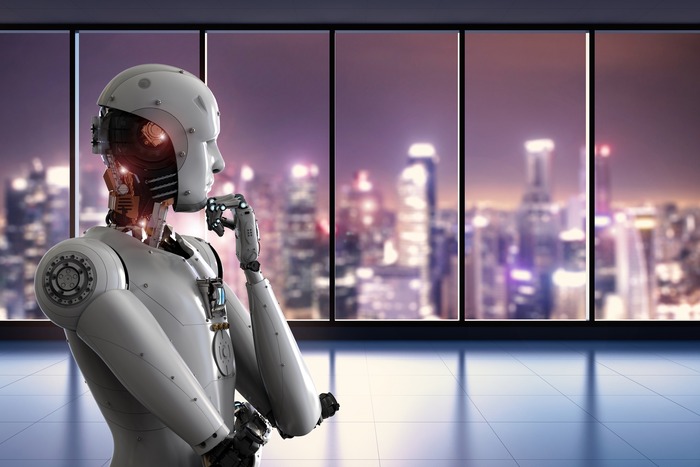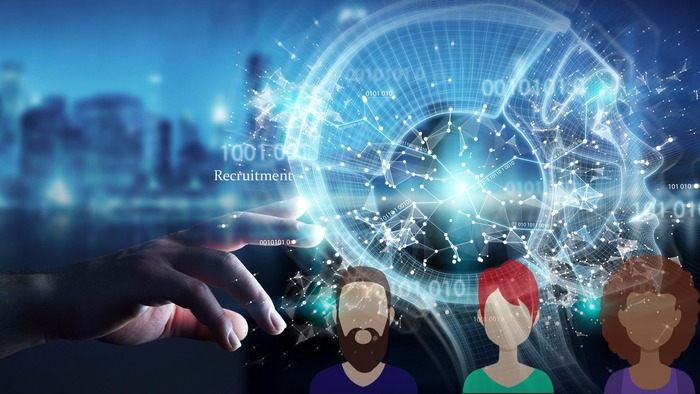Imagine a recruitment process where finding the perfect candidate isn’t a daunting task but a streamlined, efficient journey. AI at Work and machine learning make this a reality. These technologies analyze vast amounts of data to identify patterns, skills, and traits that match specific job requirements. It’s like having a virtual assistant that understands what you’re looking for in a candidate and sifts through countless resumes to find the best fit.
Moreover, when combined with advanced software onboarding, these smart systems ensure that the onboarding process is equally seamless, integrating the new hire into the department’s workflow effortlessly. Let’s unravel the future of hiring, where technology meets expertise for a more straightforward, efficient, and effective departmental recruitment process.
Reimagining the Role of HR
One of the shifts brought about by AI and machine learning in departmental hiring is the redefinition of the HR professional’s role. Traditionally, HR professionals have been responsible for tasks such as reviewing resumes, conducting interviews, and making hiring decisions. However, with the introduction of AI and machine learning tools, technology can now assist HR professionals in automating many of these tasks.
Streamlining the Recruitment Process
AI algorithms and machine learning can analyze amounts of data faster than humans can. This means that HR professionals can now leverage technology to automate aspects of the recruitment process, including screening resumes, shortlisting candidates, and even conducting interviews.
Resume Screening
Software powered by AI can efficiently review a number of resumes and identify suitable candidates for a specific position. By utilizing machine learning algorithms, these tools can learn from hiring decisions. Continuously enhance their capability to pinpoint the best candidates. This not only saves HR professionals an amount of time but also maximizes the likelihood of finding the most qualified individuals for the job.
Candidate Shortlisting
After conducting resume screening, AI and machine learning techniques can be employed to shortlist the candidates for evaluation. These tools assess skills, experience, and education to determine which candidates fit a particular position. This ensures qualified applicants proceed in the hiring process, saving HR professionals valuable time and effort.
Conducting Initial Interviews
In some cases, chatbots powered by AI can perform interviews with candidates. These chatbots utilize natural language processing algorithms to converse with applicants, posing questions to evaluate their skills and suitability for the role. This not only assists HR professionals in saving time but also provides candidates with a more interactive and engaging experience throughout the recruitment process.
Improving Diversity and Inclusion
One of the advantages of incorporating AI and machine learning into the hiring process within departments is its potential to enhance diversity and inclusion in the workplace. Traditional hiring methods often fall prey to biases, resulting in groups being underrepresented. However, AI algorithms are designed to be impartial and unbiased, ensuring that candidates are evaluated based on their qualifications and skills.
Reducing Bias in Recruitment
AI and machine learning algorithms can minimize bias during recruitment by focusing on candidates’ abilities and credentials rather than their demographic characteristics. These algorithms can be trained to disregard factors like names, genders, ages, or ethnicities, enabling HR professionals to make equitable hiring decisions. This fosters diversity and inclusion and cultivates a fairer working environment.
Promoting Fairness and Transparency
Machine learning algorithms also contribute to fostering fairness and transparency throughout the recruitment process by providing selection criteria based on measures. With data-driven insights at their disposal, HR professionals can make informed decisions while being able to articulate their rationale using metrics. This enhances accountability within the HR department while establishing trust across the organization.
Conclusion
Undoubtedly, AI and machine learning are significantly shaping the future of hiring within departments. Technological advancements streamline parts of the hiring process, saving HR professionals time and effort. Moreover, they play a role in enhancing diversity and inclusivity by minimizing biases during recruitment decisions. As technology progresses, we can anticipate AI and machine learning innovations that will make the hiring process more streamlined, equitable, and transparent. HR professionals need to embrace these changes and adjust their approaches to stay ahead in a competitive job market.


